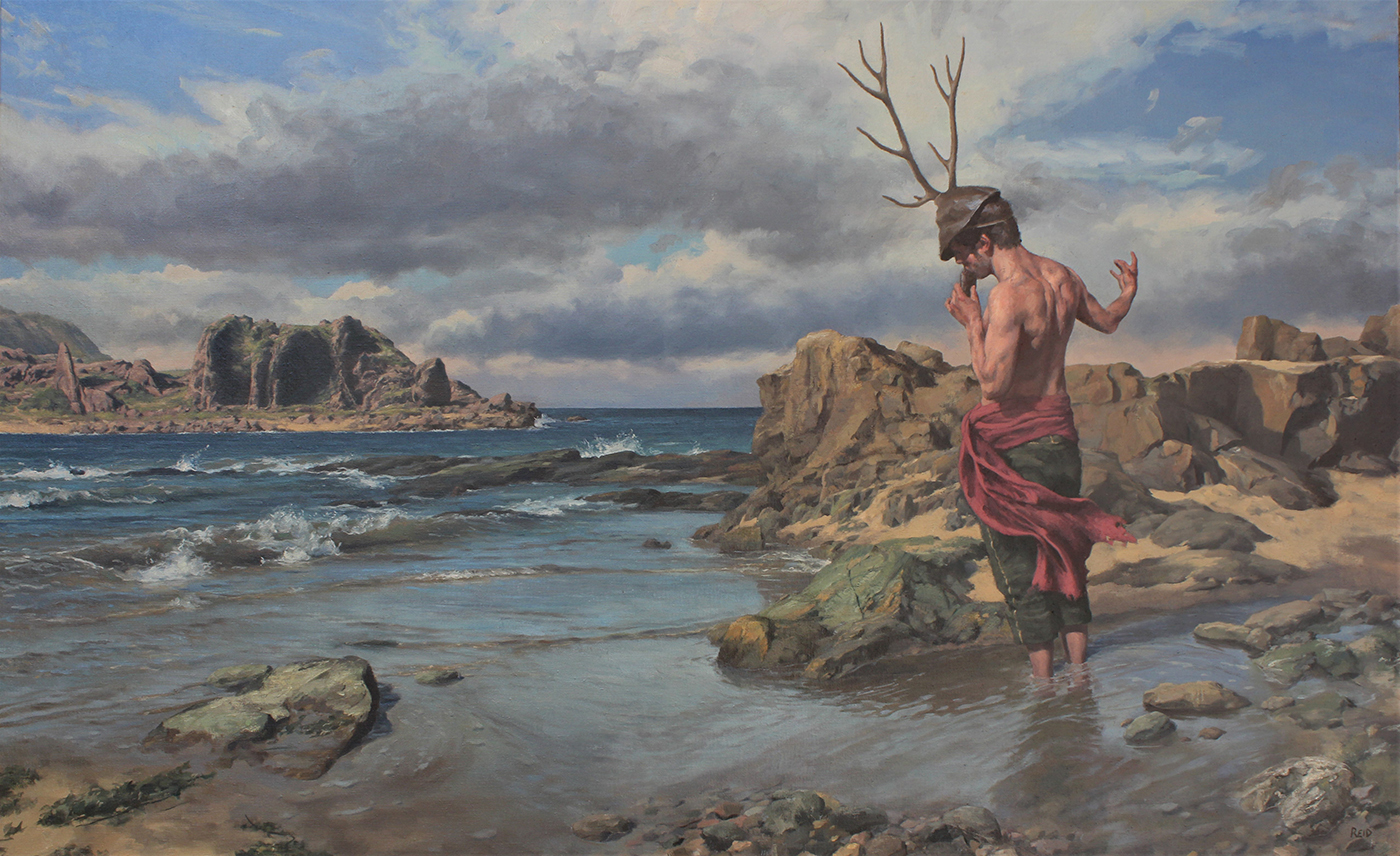We welcome back the masterful Paul Reid for his seventh solo exhibition at The Scottish Gallery. His latest exhibition features characters from both Classical and Celtic traditions and we are delighted to share some of Paul’s personal insights into his mythological subjects below.

Paul Reid, 2019Tir Na Nog translates as ‘ The Land of the Young’ and comes from Celtic Mythology. Similar to Elysium in Greek Mythology, Tir Na Nog was a wondrous, bountiful paradise where the souls of the dead lived on in eternal bliss. It was said that each time a wave broke upon the shore, the ‘white horses’, another spirit received permission to enter.
In my painting of this subject, I have included the figure of the Celtic God Cernunnos, who was a nature god similar to Pan but who was also likened to Mercury of Greek Myth. Both Cernunnos and Mercury were gods related to ideas of the afterlife-Mercury was said to lead the souls of the dead to Hades. My idea was to have Cernunnos playing the Pan pipes, ushering the ‘white horses’ on to the shores of Tir Na Nog.
The landscape in the painting is an imagined one I constructed from various different beaches on the East Coast of Scotland.

Paul Reid, 2017Circe was a powerful sorceress, daughter of Helios and the Oceanid Perse. She lived on the mythical island of Aeaea, transforming her enemies, or those who offended her, into various animals. She was responsible for turning Picus into a woodpecker for refusing her love, Scylla into the monster that terrorised the Straits of Messina, and also Odysseus’ crew into pigs in Homer’s Odyssey.

Paul Reid, 2015In Celtic mythology, Cernunnos is a stag-horned God associated with Greek and Roman divine figures such as Mercury, Actaeon and Jupiter. He is usually depicted as a god of nature, animals and the underworld but also of fertility when connected to Pan. Palaeolithic cave paintings found in France that depict a stag standing upright or a man dressed in stag costume seem to indicate that Cernunnos’ origins date to those times.

Paul Reid, 2015Cyclopes are one-eyed Giants. In Homer they are savage monsters living on an island without laws or government, devouring unfortunate travellers. In Hesiod, however, the Cyclopes are divine craftsmen who make for Zeus his thunderbolts and are depicted as the workmen of Hephaestus, god of fire as blacksmiths and artisans.
Hephaestus and his Cyclopes were famed for fabricating the Shield of Achilles and miraculous automata, self moving tripods and golden servants. They were also credited with the making of ancient fortifications and colossal mythical buildings.


